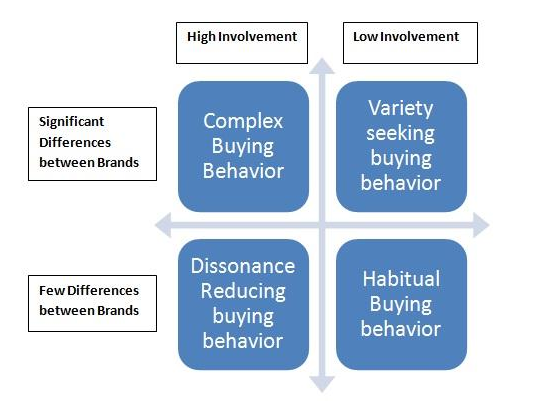What is Consumer Behaviour in Marketing - Consumer Psychology
Table of Contents

- jaro education
- 4, May 2024
- 10:00 am
Consumer behaviour is a fascinating domain where economic forces and human interests collide between the never-ending forces of supply and demand. Imagine a busy marketplace where competitors with several interesting items compete for customers’ attention. Hence, in such situations, judgments are made, including logical calculations, the vagaries of emotion, and the push of persuasion. In this over-developed area, society’s dynamic connection with consumption is created, which ultimately gives birth to the phenomenon known as consumer behaviour in marketing. Let us delve into the concept of consumer behaviour and understand its impact on the world of marketing.
Consumer Behaviour
Individuals’ steps and decisions while making purchases are known as consumer behaviour. The phenomenon of consumer behaviour can be identified in a series of steps, which include:
- Recognition of the needs or demands regarding a particular product
- Evaluating the necessary information
- Consideration of various substitutes for the product
- Selecting the product that satisfies the maximum needs of the consumer
- Further evaluation of the purchased product
- Repurchase of the product only after it can exceed the consumers’ expectations.
- If the product fails to perform, the consumer will immediately discard it, creating a negative image for the brand.
Consumer behaviour in marketing is essential in the business world. It helps companies understand the factors that influence consumers’ decisions about which goods or services to purchase. Marketers may obtain some valuable insights into the elements that drive purchasing decisions, such as individual preferences, wants, and motives, as well as external influences, including social, cultural, and economic aspects, by analysing customer behaviour. By understanding the factors that cause a change in the consumers’ purchasing decisions, the companies can design campaigns that can effectively target their target audience, accordingly create products, and implement marketing strategies that will satisfy the needs of the consumers.
Types of Consumer Behaviour in Marketing
The degree of customer participation in a purchasing choice determines their buying behaviour. By observing the patterns displayed while purchasing a product, the types of consumer behaviour in marketing can be categorised into four important categories, which include:

*cootrack.com
1. Habitual Buying Behaviour
When purchasing items for everyday use, people tend to purchase them without much consideration. The options for selecting the product consist either of the following points:
- Preferred choice of brand
- Easy availability in the local shops
- A frequently used brand
- The most important factor, i.e., the least expensive one.
When a customer rarely participates in the decision-making process, it is recognised as habitual buying behaviour. In this case, the consumer only sees a few notable brand distinctions. In terms of brand loyalty, there is not a slight indication exhibited in this type of purchasing behaviour. Moreover, the consumers are least bothered about the product and hence do not feel the need to evaluate the information related to the product.
2. Complex Buying Behaviour
When purchasing a costly product or one they are unfamiliar with, consumers respond somewhat differently. The consumer might seek advice from his/her trusted individuals before participating in any kind of purchasing decision because a higher level of risk is associated with such decisions.
Customers who purchase pricey products are more likely to indicate complex purchasing behaviour. These types of customers participate actively in this rare transaction. Before the purchase, the consumer ensures to have a detailed investigation regarding the product as a tiny mishap could result in purchasing a wrong product that the consumer might dispose of immediately.
3. Variety-Seeking Buying Behaviour
Consumers who do not have a high level of engagement with a particular product or brand, tend to display a propensity to purchase products with a strong inclination toward variety. Thus, this behaviour is identified as a variety of buying behaviour of the consumers.
In this instance, customers frequently swap brands without having the slightest interest towards brand loyalty. Customers that exhibit this type of behaviour tend to have an increased purchase of a huge range of goods that are mostly made out of a desire for variety.
4. Dissonance Reducing Buying Behaviour
A lack of harmony is referred to as dissonance. Hence, when customers find it difficult to distinguish between brands during the purchase process, this behaviour is recognised as dissonance-reducing buying behaviour.
Before making the purchase, the buyer exhibits some trouble related to selecting a product from a wide range of possibilities. Customers experience dissonance when they think they will regret their choice since they have no preferred brand and none of the possibilities are appealing.
Application of Consumer Behaviour in Marketing
The pattern of consumer behaviour plays an important role in the dynamic business world as entrepreneurs can develop products after understanding the inclination of purchase of a consumer. Hence, the application of consumer behaviour in marketing can be used for the following reasons:
1. Evaluating the market
By studying consumer behaviour, you can assess consumer demands and wants that are not being met. The peculiar pattern can be recognised by
- Analysing the competitors’ product demand in the market
- Understanding the current competition in the market
- Understanding the preferences of the consumer
- Evaluating the financial capability of the consumer.
This critical evaluation might highlight the unfulfilled desires and demands and accordingly, the entrepreneurs could design the product.
2. Developing the product
After identifying unmet requirements and desires, the entrepreneur must choose the best combination of product, pricing, distribution, and marketing strategies that would reach the desired target audience. Extensive research on customer behaviour is extremely beneficial as it provides solutions to an excessive number of confusing questions while developing a product.
3. Creating marketing strategies
Gaining in-depth knowledge about customer behaviour is essential as it helps in developing successful marketing tactics to attract the desired target audience. With the use of consumer behaviour, entrepreneurs can obtain information that might help the company create a connection with target audiences and encourage them to purchase their products, as it will eventually lead to increased sales and strong brand loyalty.
4. Satisfying the Customers
Through a thorough understanding of consumer psychology and behaviour, companies may customise their offerings to fulfil the needs and desires of their target audience. The entire process starts from customer engagement to flawless user experiences to tailored marketing messages; each step is designed to provide complete joy and satisfaction for the customers.
Additionally, businessmen may innovate and adapt marketing strategies to stay ahead of changing competition by regularly examining customer feedback and keeping an eye on emerging market trends. This helps guarantee that their products and services are attractive and relevant to customers.
Importance of Consumer Behaviour in Marketing
While achieving the goal was very simple in the past, it has now become extremely difficult to sell a product since customers are inundated with a vast amount of information on the goods and services that are being provided. Hence, in such a situation, it is necessary to gather information and persuade customers to purchase the required product accordingly. Hence, the importance of consumer behaviour in marketing lies below:
- Customer acquisition and retention are the primary goals of consumer behaviour. Customers will repurchase the same product if they are happy with it. Hence, an organisation’s marketing strategy for the product should persuade a consumer to purchase it.
- Marketers may maximise revenue and develop effective marketing strategies by utilising the ideas and concepts of consumer behaviour. Additionally, these ideas give marketers insights into how consumers behave while making purchases.
- The ongoing pursuit of increasing an organisation’s success rate is mostly reliant on the innovation of its range of products or services. Studying consumer behaviour is essential to being able to forecast and innovate with accuracy.
- Conducting a comprehensive and in-depth analysis of customer behaviour is necessary to comprehend individual consumers’ unique variations of demands.
Conclusion
The application of consumer behaviour concepts is still necessary to be competitive, relevant, and inventive in today’s dynamic and ever-changing marketplace, where customer preferences are constantly changing, and fierce competition is instigating.
An effective marketing strategy’s foundation lies in its understanding of customer behaviour, which provides a crucial understanding of the complexities of human preferences, motives, and decision-making processes. Companies may customise their products, communications, and experiences to appeal to their target market by comprehending and utilising these insights. This will eventually increase consumer happiness, brand loyalty, and company success. Hence, To succeed in the upcoming years in the business world, companies must continue to be alert, flexible, and dedicated to comprehending and satisfying the changing requirements of the consumer by carefully understanding the concept of consumer behaviour in marketing.
If you want to build your career in marketing, then you must have in-depth knowledge regarding consumer behaviour and other related phenomena that are responsible for the stable growth of the business. To learn more about the emerging trends in the business environment, you should consider enrolling in the Online Master of Business Administration course provided by Chandigarh University. The extensive curriculum is meant to provide you with the abilities and information required to succeed in the ever-changing field of marketing. Moreover, the course combines cutting-edge theories with real-world applications and is taught by esteemed faculty members and industry leaders. To know more, contact Jaro Education.









